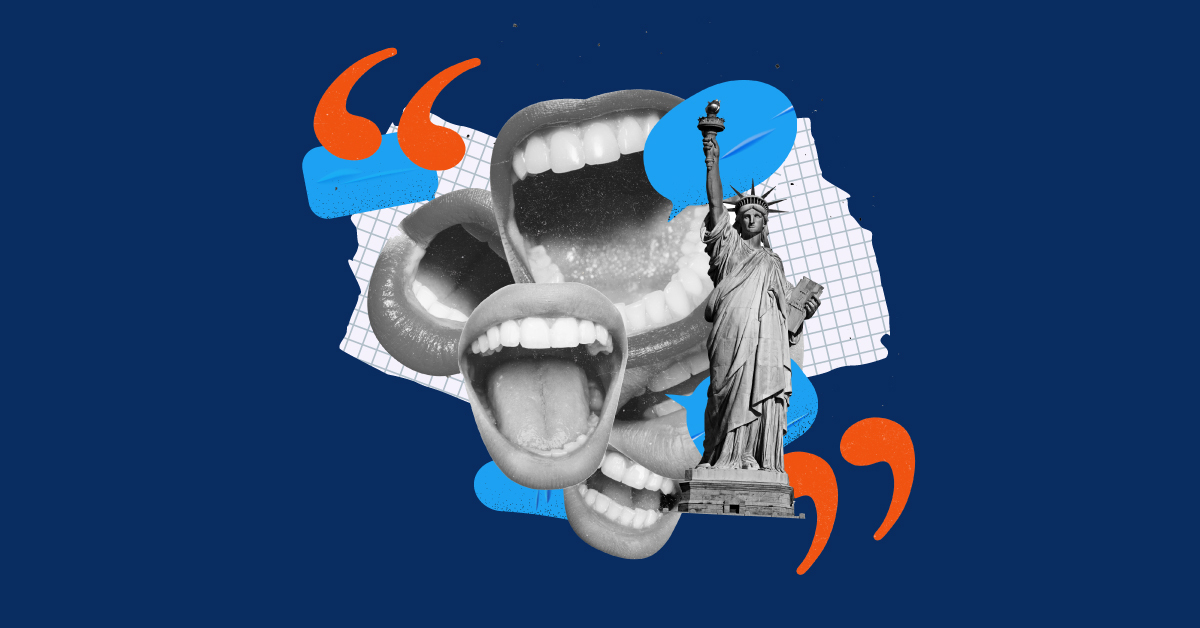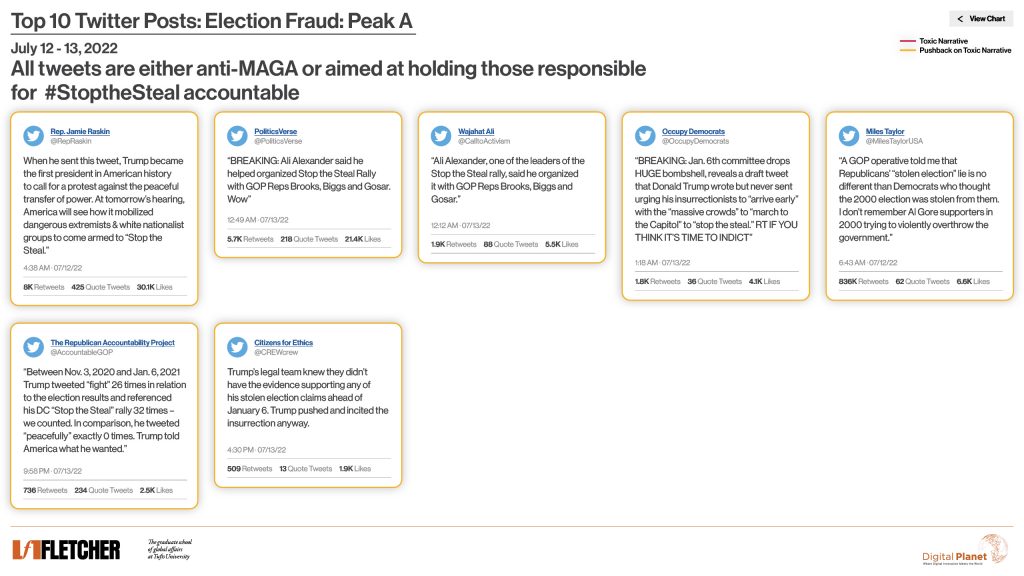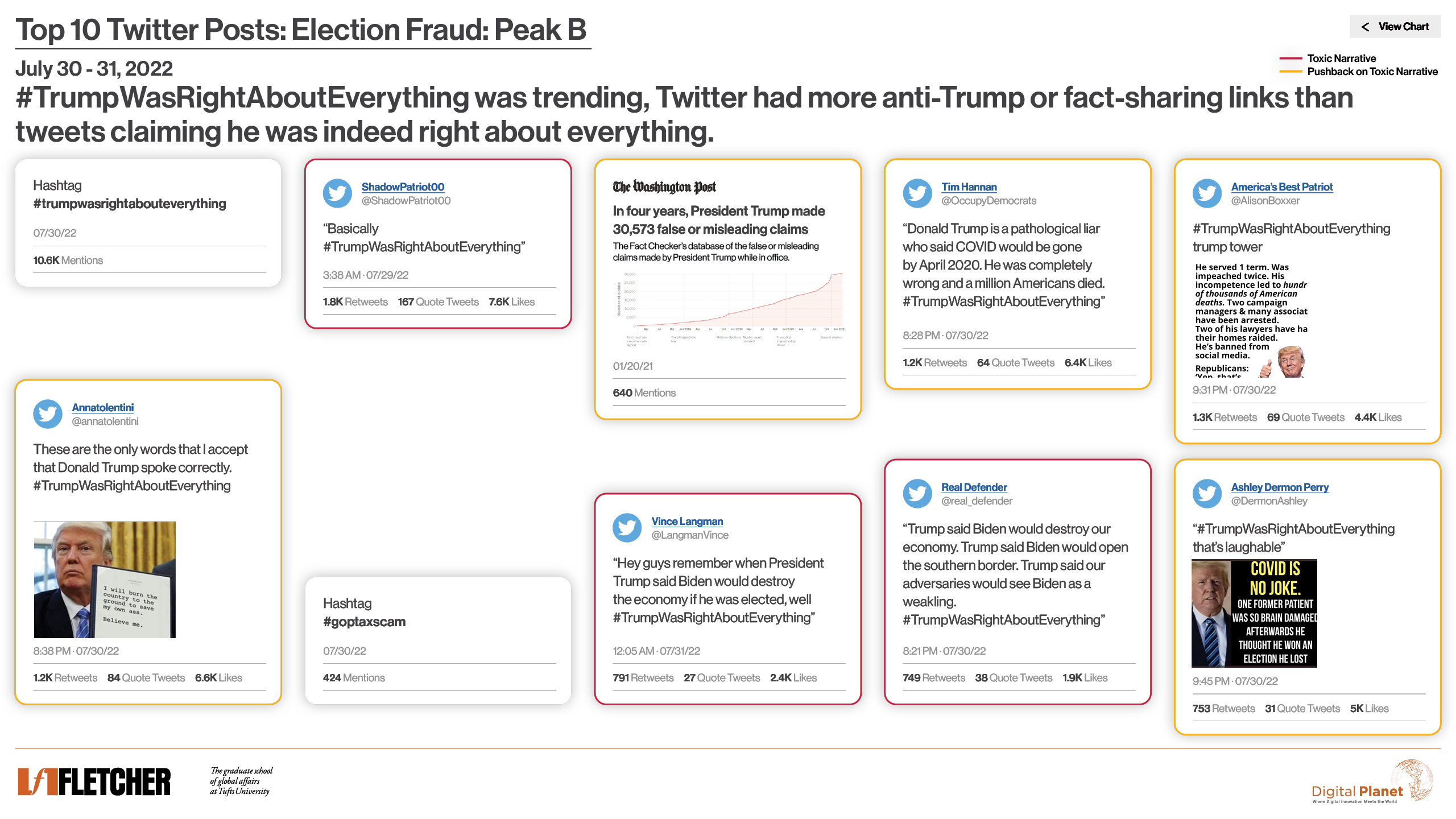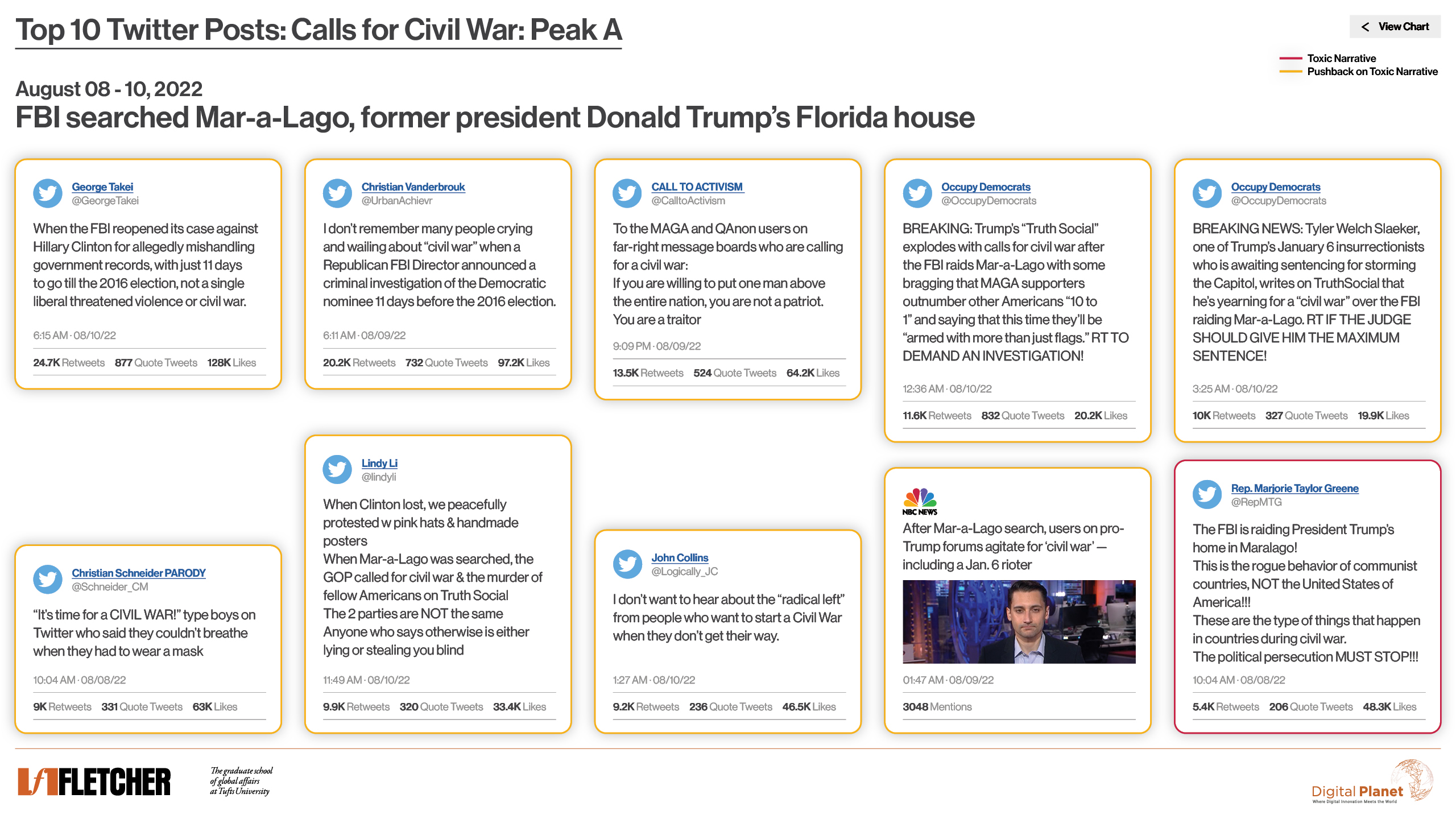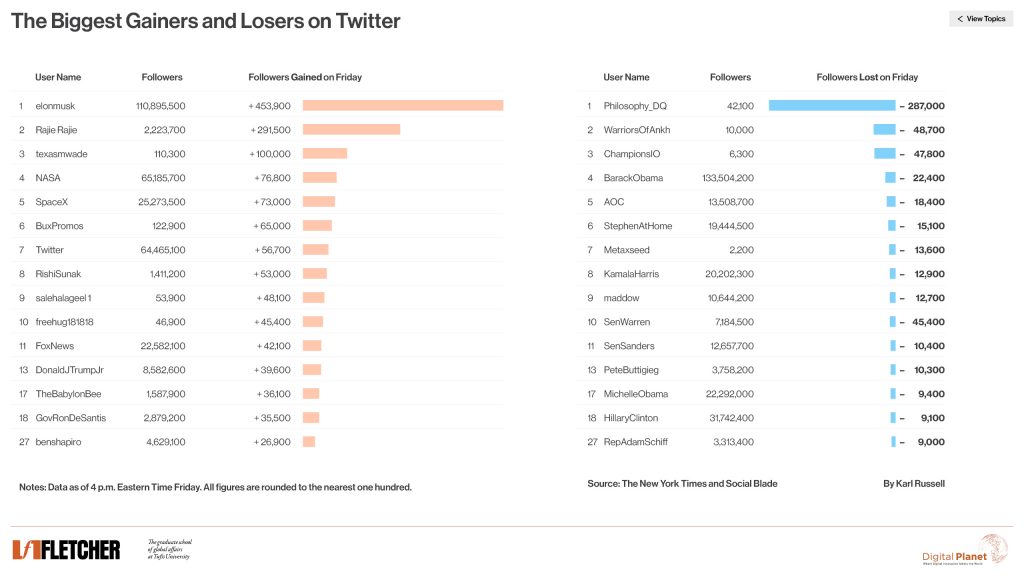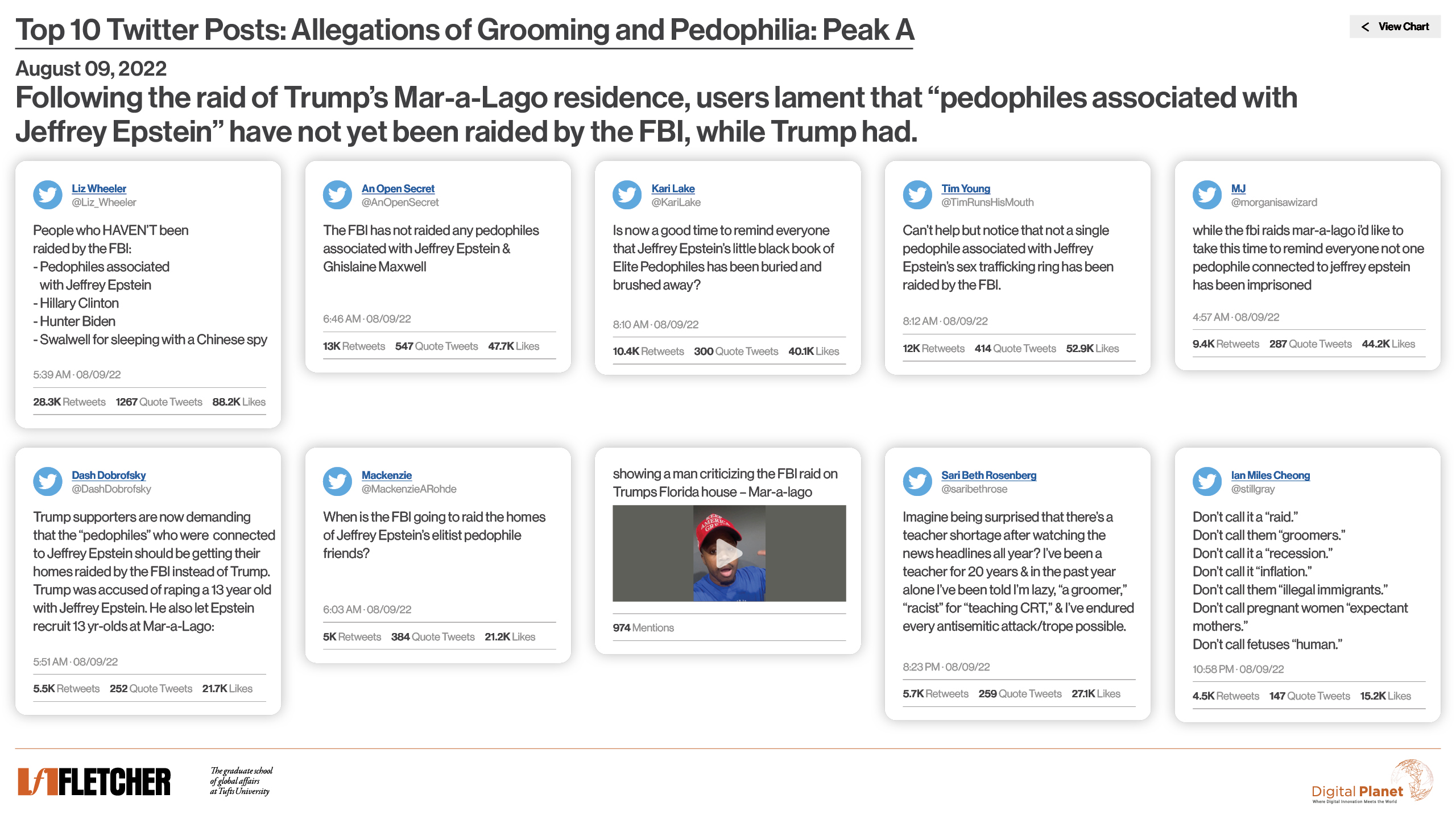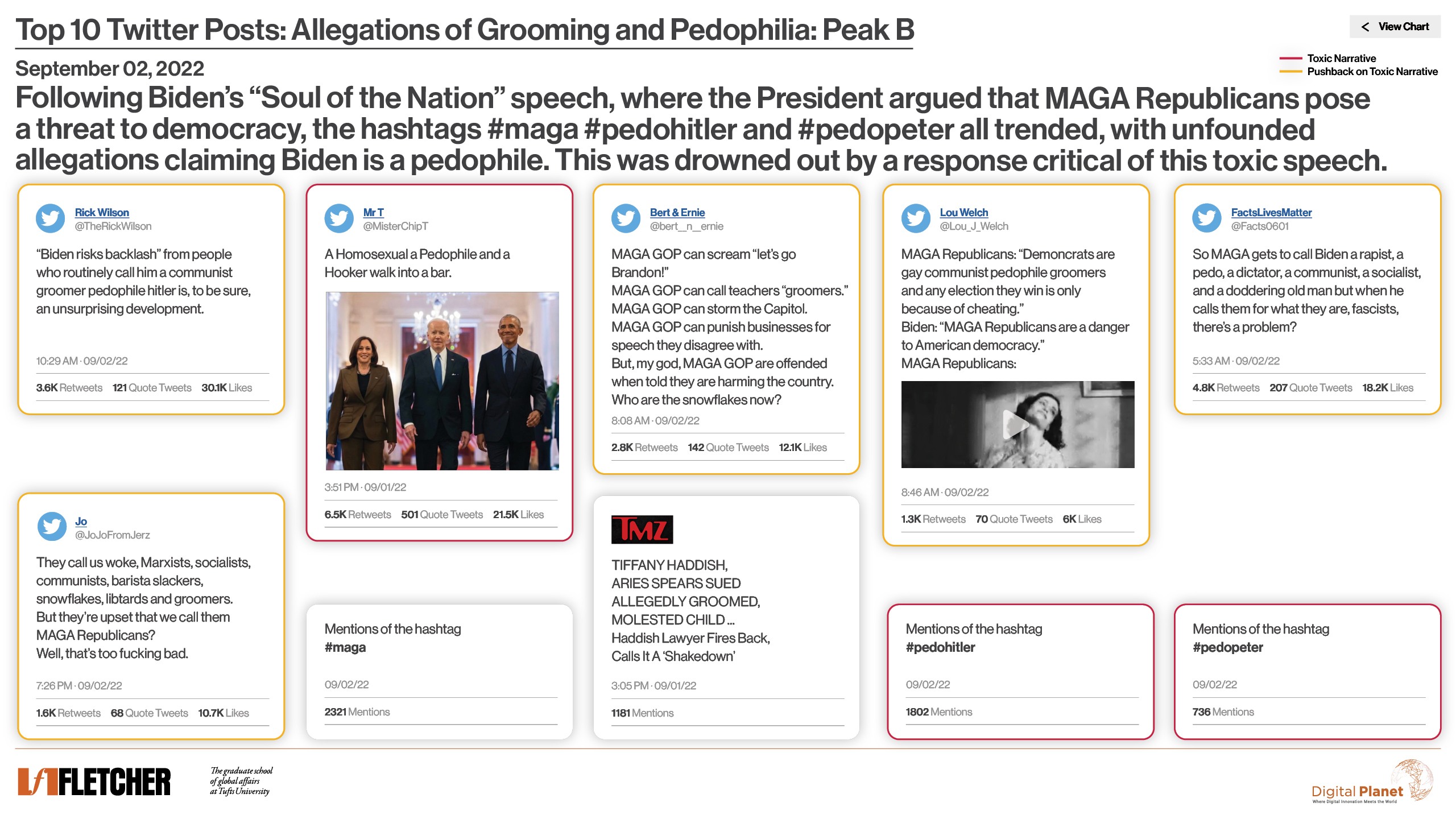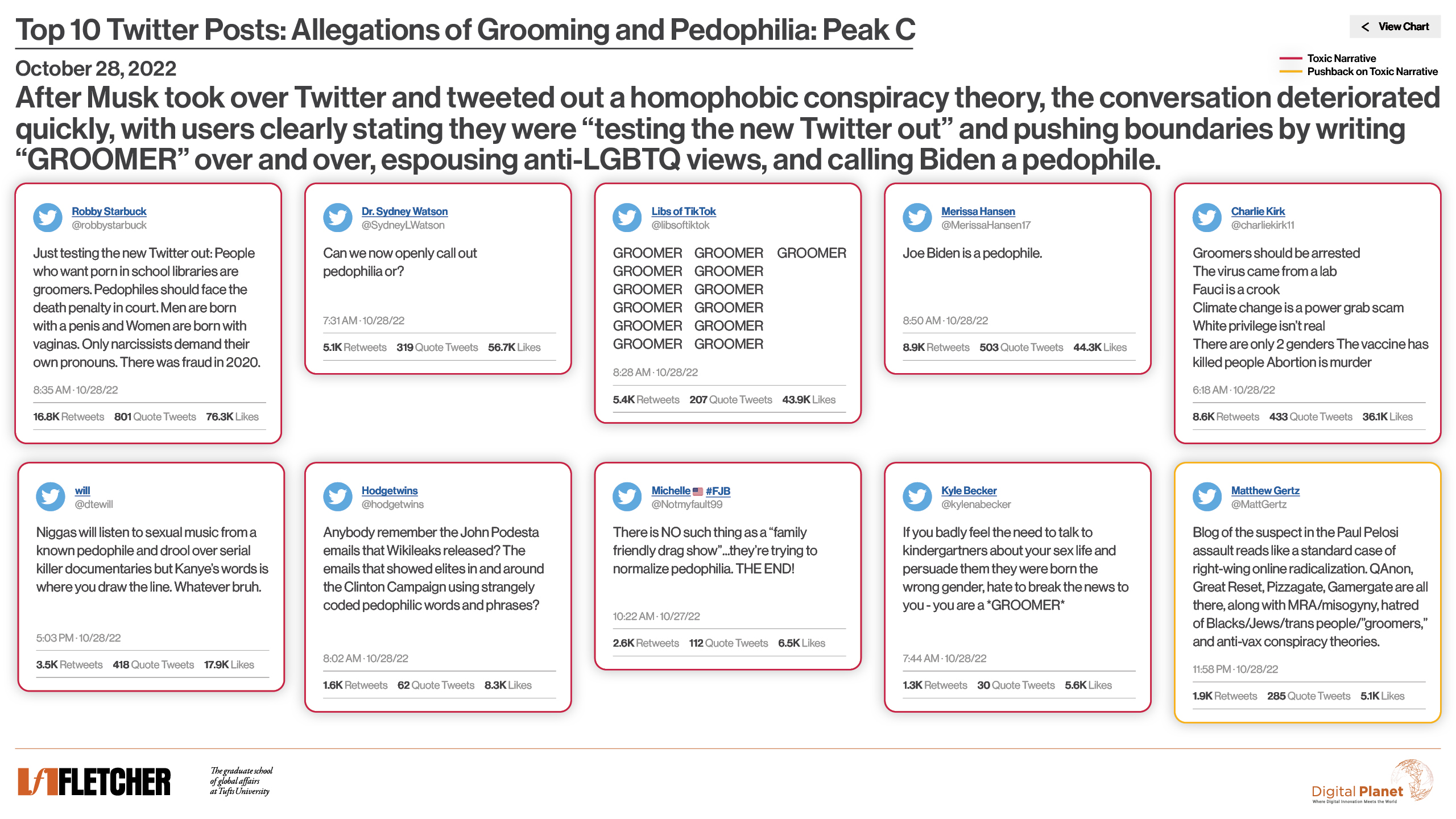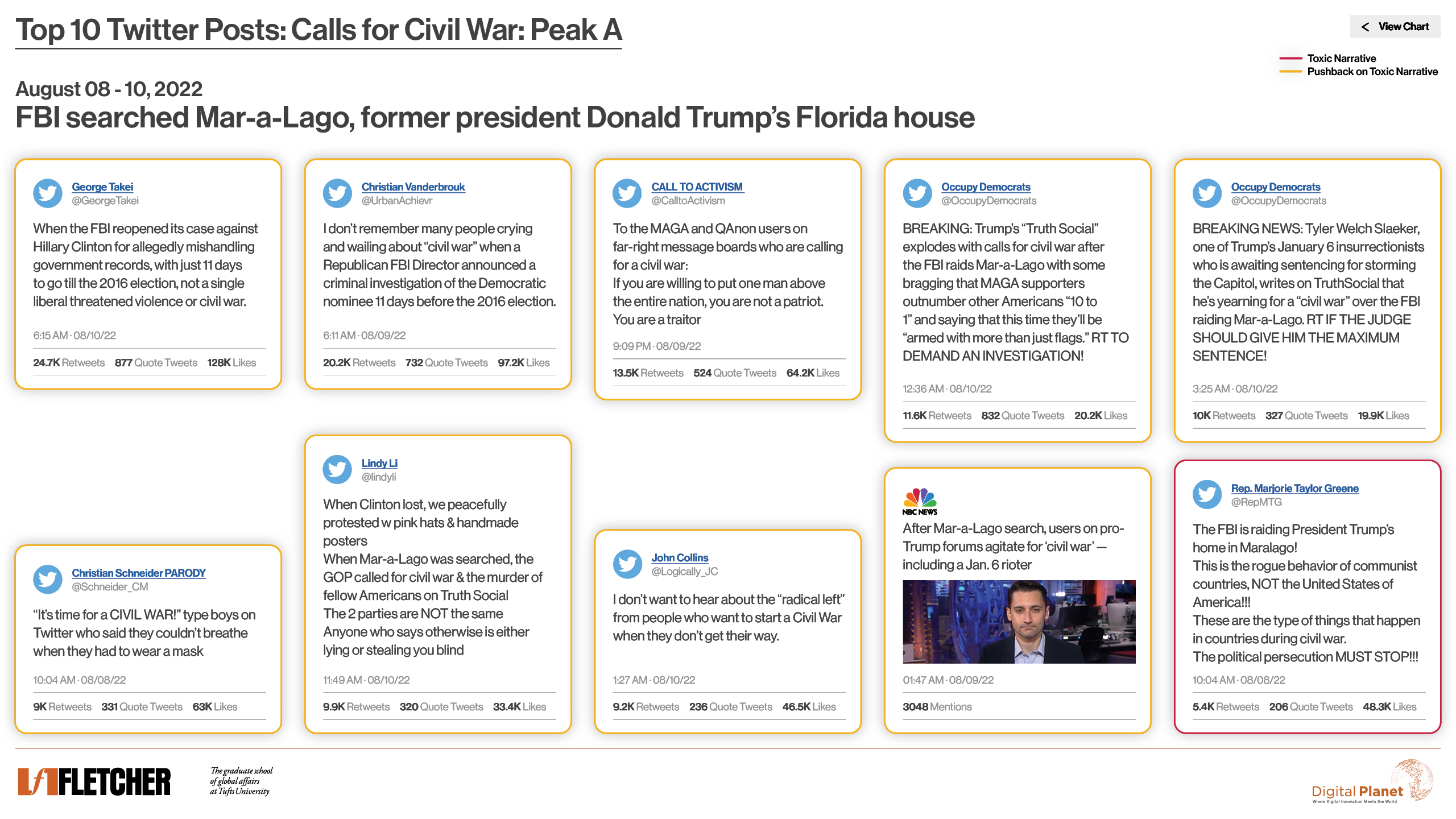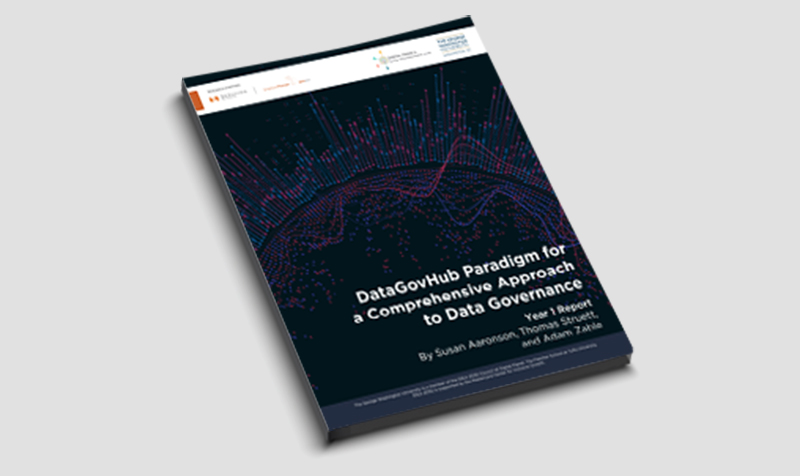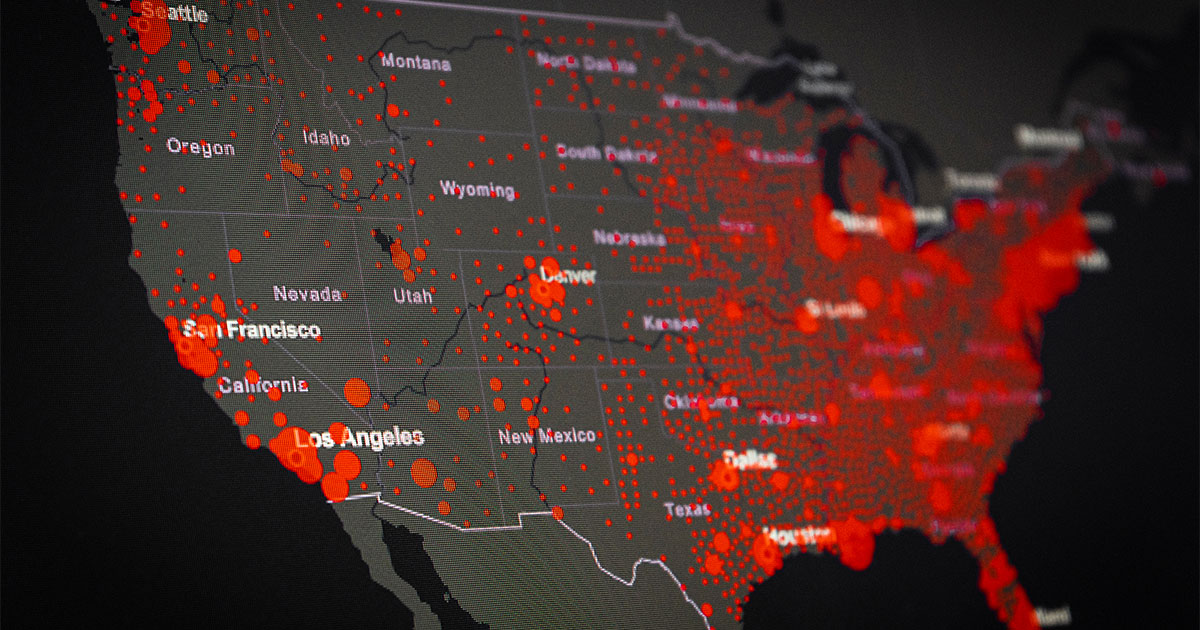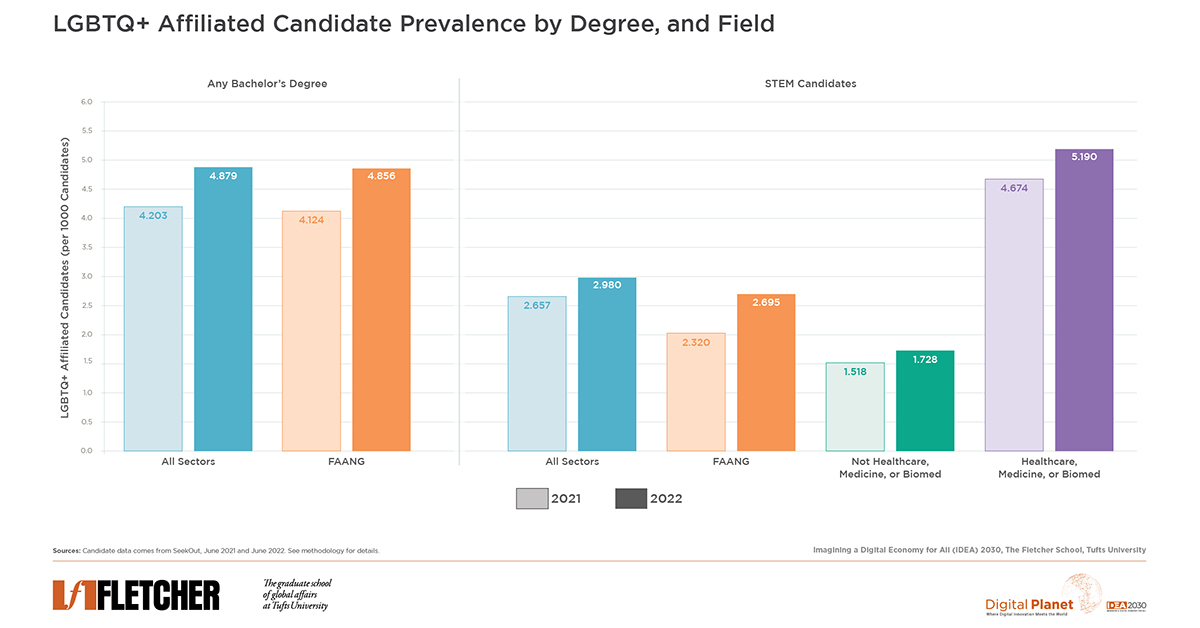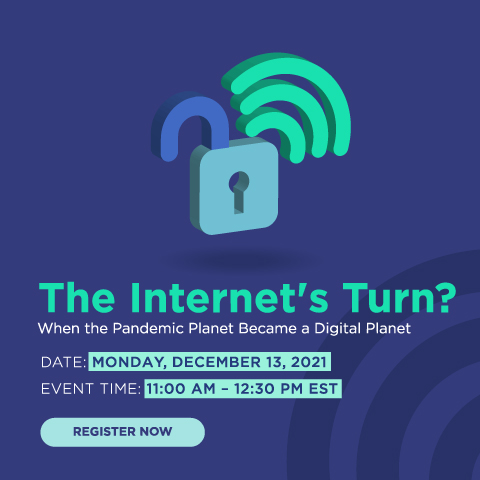Elon Musk says Twitter “cannot become a free-for-all hellscape.” Early signs show the platform is heading in the wrong direction under his leadership—at a particularly inconvenient time for American democracy
Summary
Ahead of the US midterms, we have been tracking the Twitter conversation around four of the most toxic and trending political narratives: civil war, election fraud, citizen policing of voting, and allegations of pedophilia and grooming. Our 4-month (July-October 2022) analysis revealed several interesting patterns on the nature of the conversation on Twitter. First, discussions and accusations around pedophilia and grooming appeared to be one of the most salient topics of those studied. Second, pre-Musk takeover, the bulk of the conversation on these topics was focused on refuting misinformation, deriding the toxic speech, and mocking those who spread it. While the Twitter conversation around these topics was hardly a bastion of calm and civilized debate, it reflected a commitment to combating misinformation, hate speech, and toxic ideas. Post-Musk takeover, the quality of the conversation has decayed, with more extremists and purveyors of hateful content testing the boundaries of what Twitter might allow.
Key Findings
1. Pre-Musk Twitter Combatted Toxic and Trending Narratives
Italian programmer Alberto Brandolini put clarity around a concept that most misinformation researchers, and most adults, intuitively understand: “the amount of energy needed to refute bullshit is an order of magnitude bigger than to produce it.” Known as the bullshit asymmetry principle, or Brandolini’s law, it can be observed in action in the Twitter conversation around the US midterms. While pre-Musk Twitter did contain narratives filled with misinformation, hate, and other forms of toxic speech, the reaction to it was an order of magnitude greater.
Take our first topic: election fraud. We detected 5 major peaks on the topic. The largest peak was on August 30th.
Digging into the tweets driving the peak, the majority are critical of the misinformation purveyor Dinesh D’Souza, and his “2000 Mules” book and documentary. Only two of the top tweets are supportive of the book or the narrative in the documentary that the election was stolen—both are from the author himself. In a unique case of misinformation vs. misinformation, the first tweet, which was anti-2000 mules, was marked as inaccurate by Twitter (the publisher did not give a reason for recalling the book, while the tweet claimed it was due to disinformation).
The second highest peak on the theme of election fraud was on July 12-13. All of the top tweets were either anti-Trump or aimed at holding those responsible for the Stop the Steal rally to account
Even the peak on July 30-31, when the hashtag #TrumpWasRightAboutEverything was trending, had more anti-Trump or fact-sharing links than tweets claiming he was indeed right about everything.
A similar process played out across our other narratives—like the narrative of an impending US Civil War. On the day of the Mar-a-Lago raid, while Marjorie Taylor Greene dog whistled about a Civil War, the vast majority of comments criticized her and other right-wing leaders for fomenting anger and division. Much of the chatter was in reference to calls for civil war on Truth Social, not on Twitter.
2. Twitter is a more left-leaning platform, but Republicans are still active. This may be shifting under Musk.
According to Pew Research, the top 10% of tweeters create 92% of all tweets from US users. Among these power-tweeters, 69% are Democrats or lean Democrat, while 26% are/lean Republican. Following Musk’s takeover, right-leaning and extreme right figures gained followers on the platform, while more progressive accounts lost followers.
At the same time, misinformation in the US has splintered into multiple platforms—from emerging social media sites to podcasts to TV. Many of these platforms are free of substantive debate or challenges. Some of the tweets we analyzed were referencing toxic narratives spewed on other platforms.
While it is still quite early, there are clear signs that extremist accounts are becoming more active post-Musk. This is seen most clearly in the groomers/pedophilia theme, discussed below.
3. Conspiracy theories around unfounded allegations of pedophilia or “grooming” remain prevalent on the platform, with a clear anti-LGBTQ message. These are gaining ground and getting less push-back under Musk leadership, as users test boundaries with hateful content.
Right-wing users on Twitter are obsessed with pedophilia and “grooming.” The first major spike in the topic occurred on August 9th, following the raid of Trump’s Mar-a-Lago residence, where many users lamented that pedophiles linked to Jeffrey Epstein have not yet been raided by the FBI, while Trump had.
Another spike occurred following Biden’s September 1, 2022 speech on the “Continued Battle for the Soul of the Nation,” where he argued that Trump followers and MAGA Republicans pose a threat to the country. The hashtags #maga #pedohitler and #pedopeter all trended that day, with unfounded allegations claiming Biden is a pedophile.
Even then, the substantive reaction against this toxic narrative was strong, not only from Democrats, but from moderates like Rick Wilson.
By October 28, after Musk took over Twitter, the conversation deteriorated quickly, with users clearly stating they were “testing the new Twitter out” and pushing boundaries by writing “GROOMER” over and over, similar to the antisemitic campaign hatched on 4-chan, which took advantage of the chaos of the Twitter turnover.
Many of these tweets were blatantly homophobic, attempting to tie education around trans people to grooming, or claiming that “family-friendly drag shows” “normalize pedophilia.” This was also occurring in concert with Musk tweeting out a link to a website known for easily-debunked misinformation, which claimed Nancy Pelosi’s husband was not attacked by an intruder, but rather a male lover or sex worker. In fact, it appears Mr. Pelosi’s attacker was motivated by right-wing conspiracy theories.
4. News consumers must approach reporting on misinformation with skepticism and an eye for detail
Information disorder research is still a young discipline, with diverse methodologies, all of which carry limitations and caveats. Much of the reporting discusses percent increases in “mentions” without clarifying which users were driving the conversation. For example, in The New York Times article “After Mar-a-Lago Search, Talk of ‘Civil War’ Is Flaring Online,” the authors write:
Soon after the F.B.I. searched Donald J. Trump’s home in Florida for classified documents, online researchers zeroed in on a worrying trend. Posts on Twitter that mentioned “civil war” had soared nearly 3,000 percent in just a few hours as Mr. Trump’s supporters blasted the action as a provocation. Similar spikes followed, including on Facebook, Reddit, Telegram, Parler, Gab and Truth Social, Mr. Trump’s social media platform. Mentions of the phrase more than doubled on radio programs and podcasts, as measured by Critical Mention, a media-tracking firm.
Our own analysis found that on Twitter, the talk of civil war was dominated by people expressing concern over MAGA personalities referencing “civil war.” While there were certainly Trump supporters claiming the raid was a provocation, their voices were drowned out by those criticizing this view.
Reporters and news consumers must examine misinformation research with a skeptical lens, and look for repeatable patterns across multiple methods.
This is not to minimize the very real concerns around polarization and potential political violence, but it does signal that there was a more nuanced conversation happening on pre-Musk Twitter than many may assume after reading the above-referenced article.
To dig into the data and analysis for the four toxic narratives, please visit our interactive report below:
We will continue to follow these narratives around the US midterms. Watch this space for updates. Share your thoughts with us on—for the time being—Twitter: @dgtl_planet
Digital Pulse, an initiative of Digital Planet, is a platform for measuring and understanding evolving sentiments and responses, expressed online by people around the world, to breaking events globally by harnessing unstructured data.
For this piece, the gathering and preliminary analysis of unstructured data was conducted by Ripple Research, a Digital Planet affiliate, under the direction and guidance of Bhaskar Chakravorti, Ravi Shankar Chaturvedi, and Christina Filipovic. Final analysis and writing by Digital Planet.
Special thanks to Graduate Research Analyst Mitakshi Lakhani for analysis and support.


